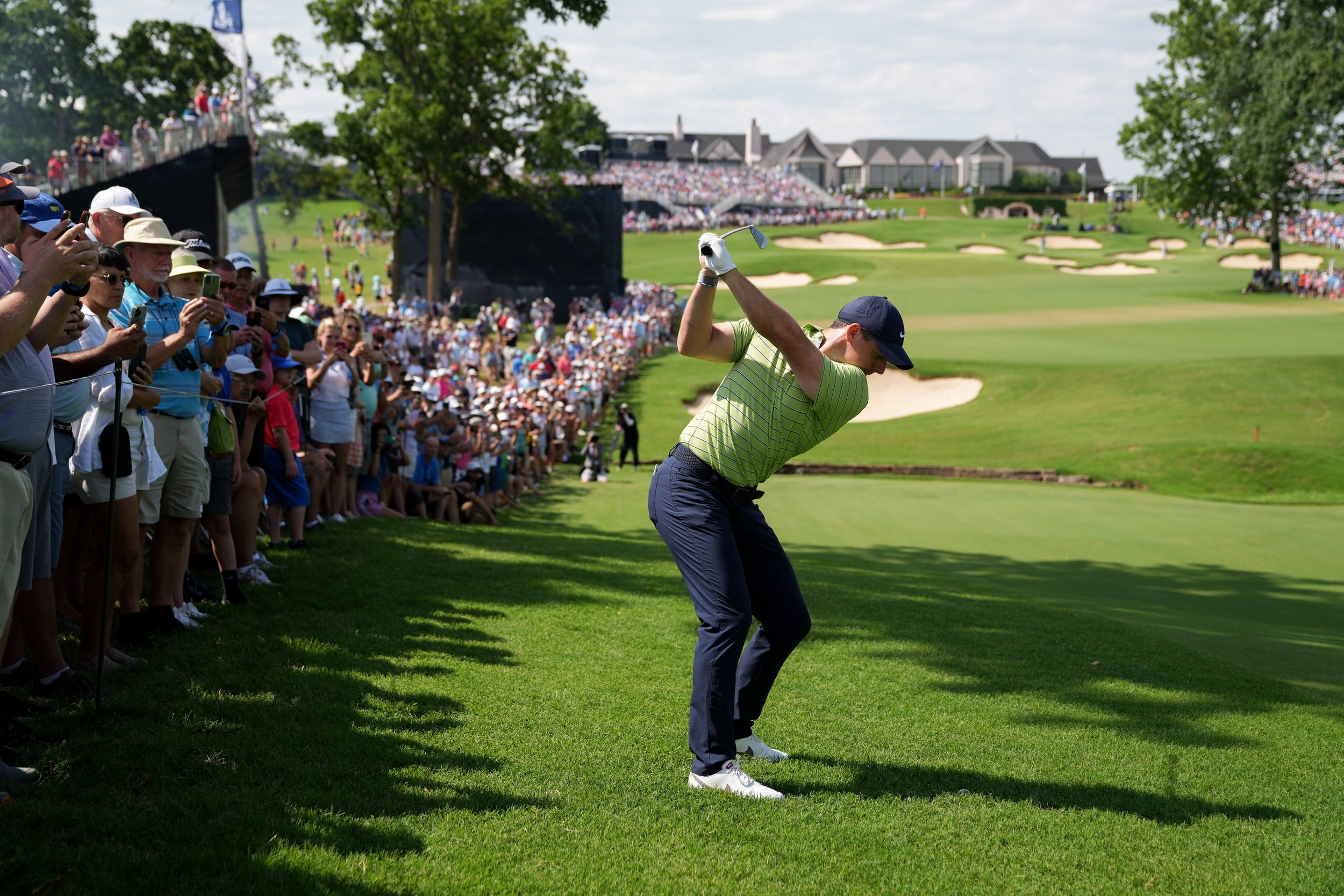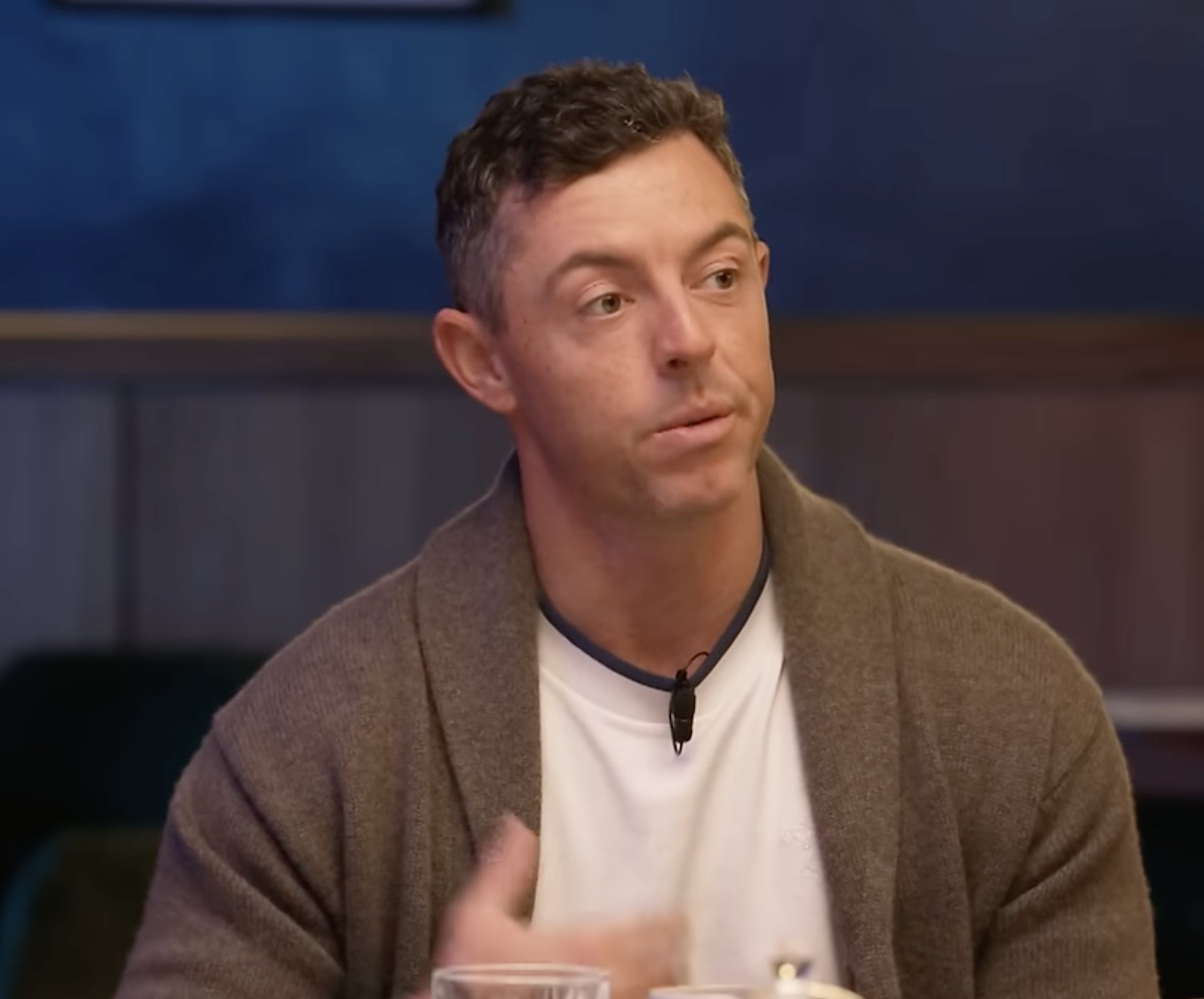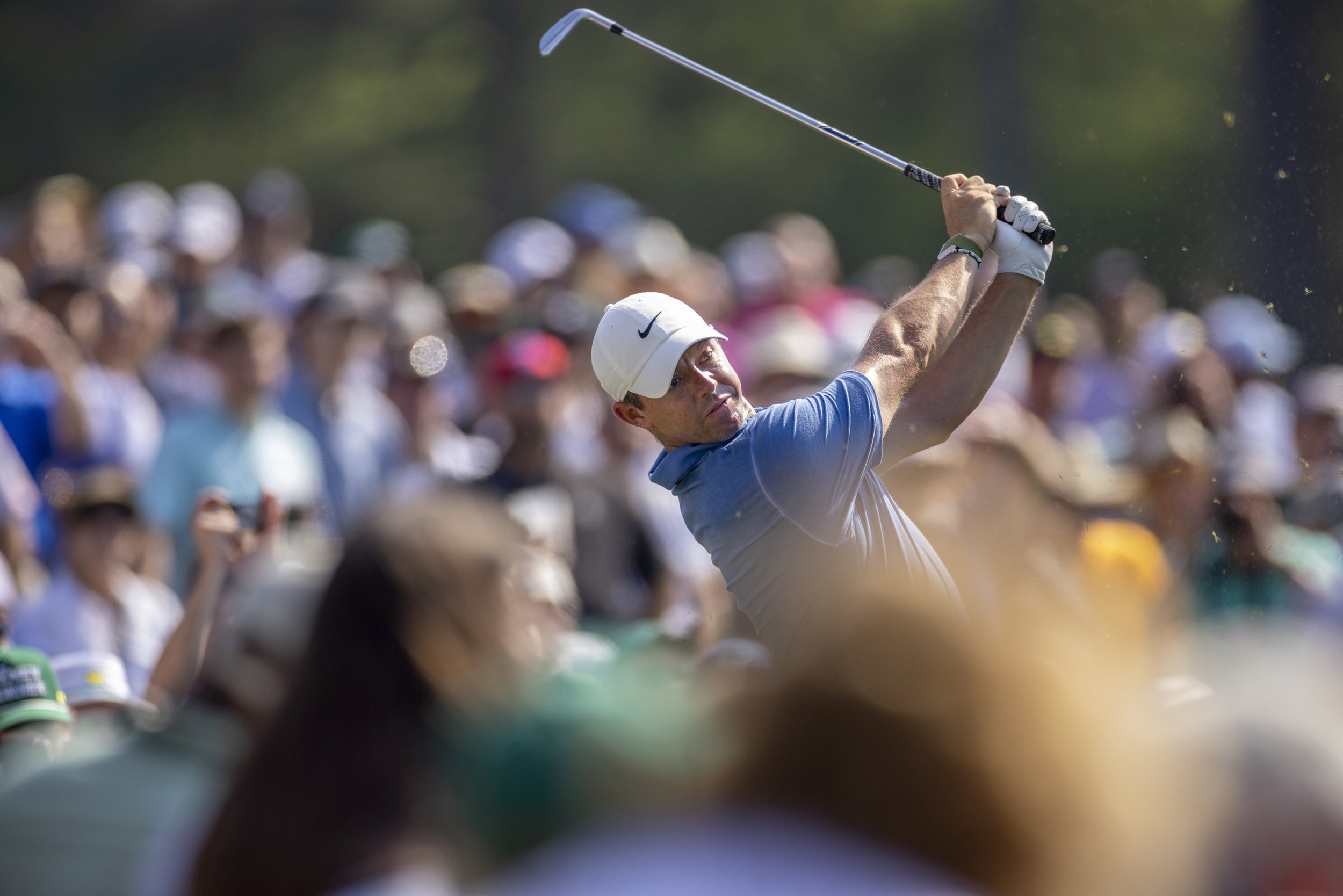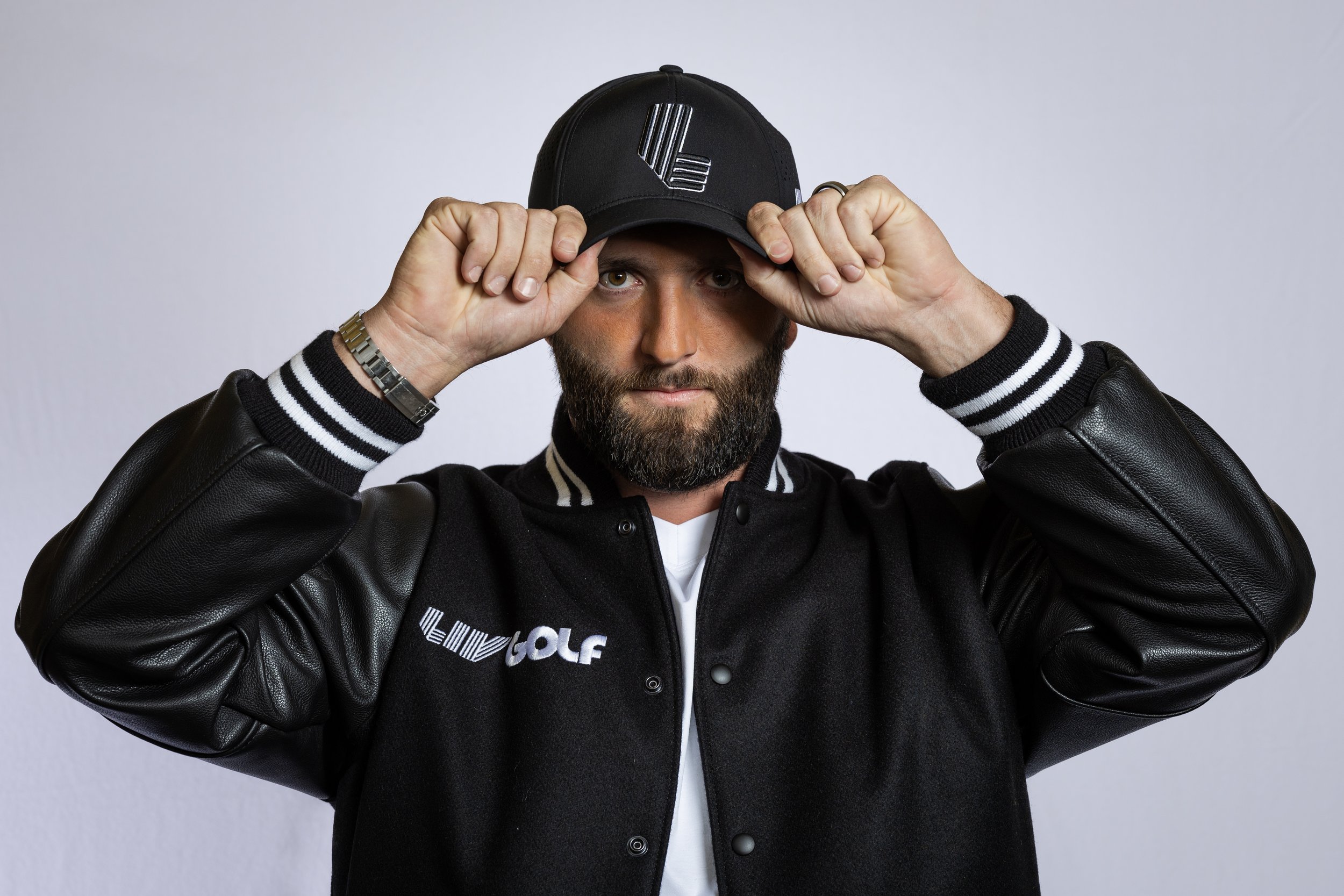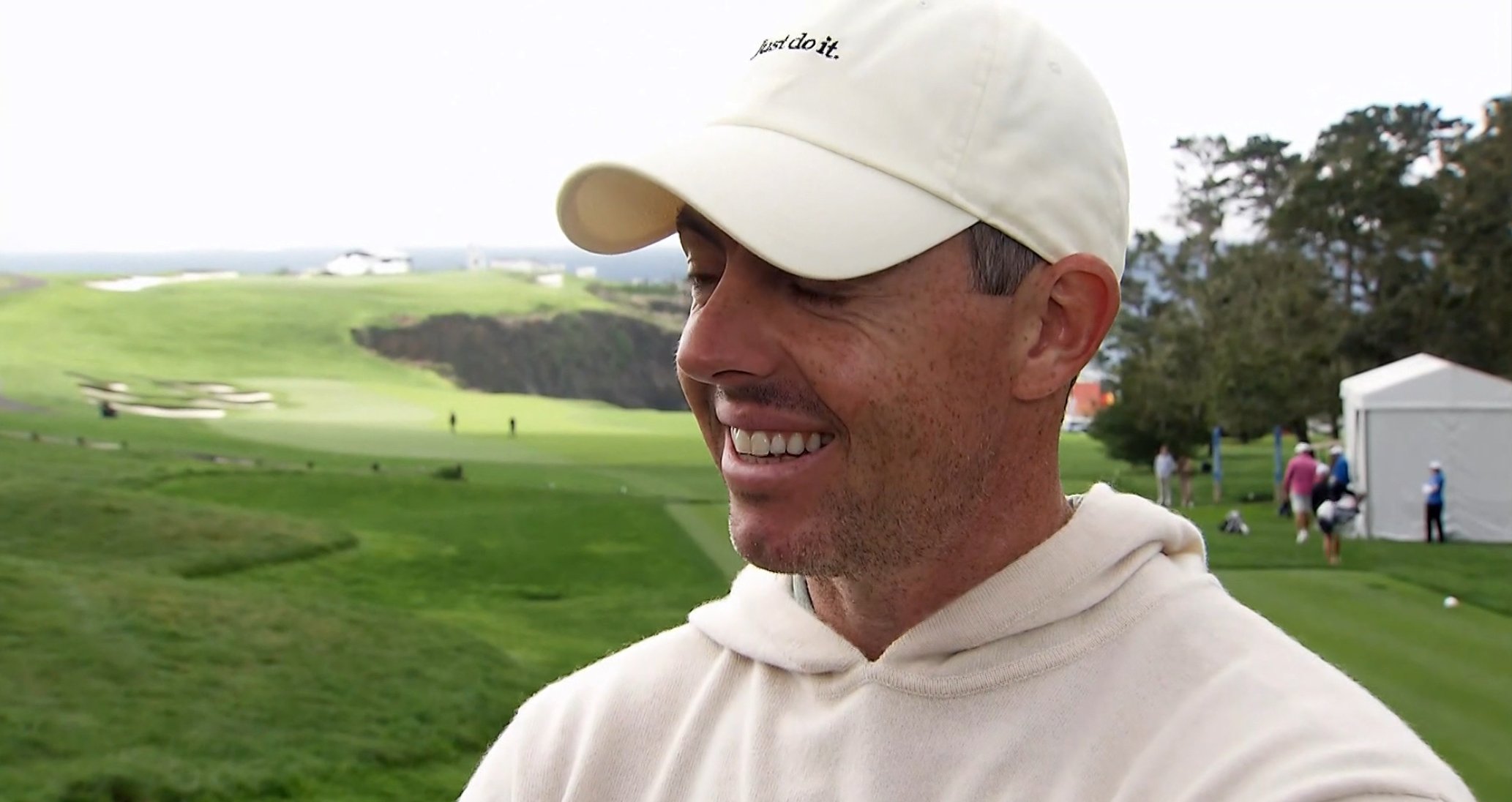'I wouldn’t say I’ve lost the fight against LIV, but I’ve accepted this is part of our sport now'
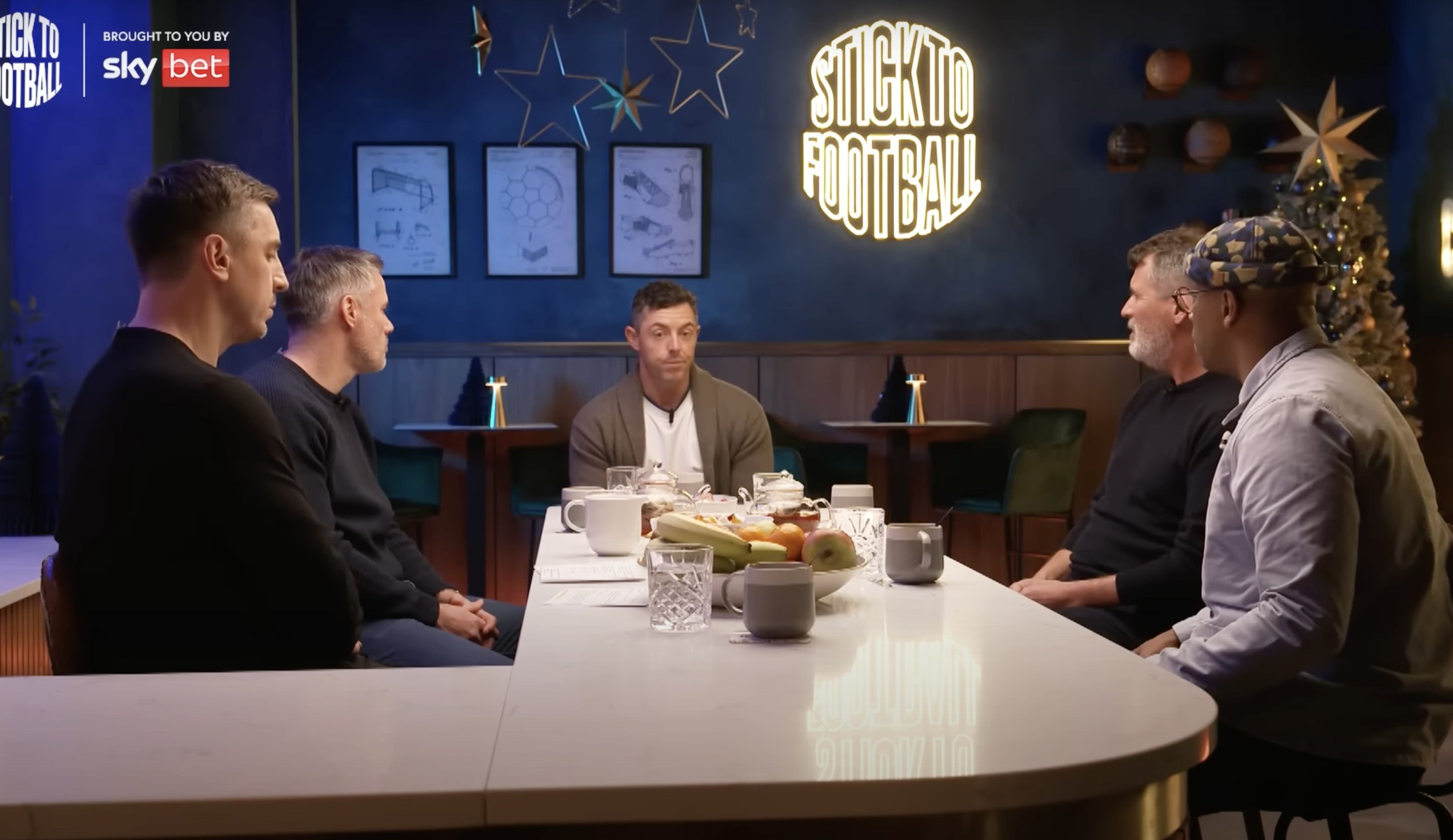
Rory McIlroy chats with former soccer stars Gary Neville, Ian Wright, Roy Keane and Jamie Carragher on Sky’s ‘Stick to Football’ podcast
Rory McIlroy painted himself in a corner with his vehement opposition to the Saudi-backed LIV Golf League and is now re-positioning himself as the game’s major tours negotiate a deal with Saudi Arabia’s Public Investment Fund.
Speaking with former soccer stars Gary Neville, Ian Wright, Roy Keane and Jamie Carragher on Sky’s ‘Stick to Football’ podcast, the former world number one now accepts that LIV Golf has been legitimised by the June 6 framework agreement between the PGA TOUR, the DP World Tour and the PIF.
While he had said in the past he had a problem with the source of the money, he now says he doesn’t blame Jon Rahm for taking an undisclosed upfront fee to sign for LIV, describing it as “a smart business move”.
Adding that he’s now “accepted that LIV is part of golf” and that peaceful co-existence is inevitable, he admits he’s been too judgemental of those who have made the move.
“I think at this point, I was maybe a little judgmental of the guys who went to LIV golf at the start, and I think it was a bit of a mistake on my part because I now realise that not everyone is in my position or in Tiger Woods’ position,” he said.
“We all turn professional to make a living playing the sports that we do, and I think that’s what I realised over the last two years.
“I can’t judge people for making that decision, so if I regret anything, it was probably being too judgmental at the start.”
He added: “Ultimately, you can say what you want and do what you want, but at the end of the day, you’re not going to be able to change people’s minds.
“You’re never going to make them decide based on what you say. I wouldn’t say I’ve lost the fight against LIV, but I’ve just accepted the fact that this is part of our sport now.”
McIlroy says he has never received a formal offer to join LIV Golf simply because he refused to entertain it.
“I don’t know what the signing-on fee is, but I have seen that there is talk of Jon Rahm getting $400m,” he said. “I’ve never had an offer from LIV golf personally. I didn’t engage with it when they came to me and I think at this point, I’ve set my stall out.”
Just how much McIlroy knew of the negotiations between the PIF and the PGA Tour remains unclear.
“I met Yasir Al-Rumayyan at the end of 2022 in Dubai, and said ‘what do you want?’, and we had a good chat. He loves the game of golf and wants to do certain things – he thinks the team element in golf can really take off and try to build franchise value in some of these teams,” McIlroy said.
“When I got back to America at the start of 2023, I was on the board of the PGA Tour and told them that someone must talk to this guy [Al-Rumayyan]. There was a plan put in place that one of the board members would try and develop a relationship with him, to see if we could try and figure something out and all move forward together. I knew that there were conversations being had, but I didn’t know that it would happen so quickly. Then on June 6th, the framework was announced – a lot of the players were angered by it because they were completely blindsided by it.
“I guess I knew it was a very intimate group of people [discussing the proposal] – it was the commissioner of the PGA Tour, Yasir Al-Rumayyan, and two board members, and I knew there were conversations being had. They met in April, and they got this agreement done in June – it happened very quickly. The PGA Tour were telling everyone that these are the bad guys coming to take over our tour, and then suddenly, two months later, they did a deal with them.”
With the PGA TOUR unable to compete with the Saudi billions and a deal, in tandem with investment from US investors likely to be done sometime in 2024, he has had to accept that golf’s future will likely involve LIV in one form or another.
“What I would love LIV to turn into is almost like the Indian Premier League of golf,” he said. “The IPL in cricket, they take two months during the calendar, you have four weeks in May and four weeks in November, and you go and do this team stuff – it’s a bit different, and it’s a different format. If they were to do something like that, I think that sounds like fun – you’re at least working within the ecosystem.”
While he’s critical of the LIV Golf rebels who have lashed the PGA TOUR and DP World Tour — “they jump to LIV and start talking crap about where they’ve come from” — he understands why Rahm decided to make the move.
“I think at this point with the whole framework agreement and the merger news in June, it has legitimised what LIV was trying to do, which then made it easier for guys to jump over to LIV Golf,” he said.
“Jon Rahm hasn’t got any of the heat for going like the first guys got for going. Jon is a smart guy and I think he sees things coming together at some point so he’s thinking that he’ll take the upfront money, which is his prerogative, and if things come together, he’ll play LIV for a year then come back to play on the tour and play some team golf.
“I thought it was a smart business move from Jon – it’s opportunistic. I think he sees that things will come back together and he’s in a lucky position.
“There’s not one person that wouldn’t want him on our Ryder Cup team because of how good he is, so he was in a great position where there wasn’t a ton of risk involved for him to go, but I’ve got no problem with going if that’s what he wants to do and he thinks that’s the right decision for him and his family, then who am I to say any different at this point.”
The LIV project, he said, had exposed the PGA Tour model as flawed.
“The one thing for me is that golf has always been built on meritocracy,” McIlroy said. “You shoot the scores, rise up the ranks and you get rewarded accordingly.
“I think what LIV has done, it’s exposed the flaws in the system of what golf has, because we’re all supposed to be independent contractors and we can pick and choose what tournaments we want to play. But I think what LIV and the Saudi’s have exposed is that if you’re going on a tour and you’re asking sponsors for millions of dollars to sponsor these events, and you’re not able to guarantee to the sponsors that the players are going to show up.
“I can’t believe the PGA tour has done so well for so long. It’s exposed some flaws in the system that hopefully golf will have a look at more. If we’re going to ask these people for so much money, we need to be able to guarantee them what they’re getting. Part of the stuff that we’ve been trying to do for the last two years is figure out how we can try and bring golf back together again and learn from some of the things that have happened.
“I feel like there was a way to do it where it wasn’t going to be a massive disruptor to the game, and that’s another thing for me, it’s created a massive upheaval in professional golf which is sad to see. Some people have taken one side and some people have taken another, and golf is a small enough sport, it’s not like football where you’ve got billions of fans, so if you start dividing the eyeballs in professional golf, it’s not good for anyone.”
Hopeful that the game will eventually be reunited, he added: “People at this point need to put their feelings and egos aside and come back together and we all move forward – that would be the best thing for golf.”
McIlroy is worth several hundred million dollars and insists his career is all about adding big titles to his resumé.
He needs only the Masters to become just the sixth player to complete the career Grand Slam and admits it’s his mental game that will be key to making that dream come true.
“I sometimes do things I wouldn’t normally do because of what it is and the pressure, and I’m completely open about that,” he said. “I think I need to embrace it rather than shutting away from it.
“Every time you go back, you learn something different – I’ve had my chances at Augusta before, and every year I take that little bit and try and put it into the next year. After 14 or 15 years of it, you think it’s time to get this done.”
He says he’ll play “quite a bit” in the build-up this year as he’s often failed to peak in April.
“I went through stats review with my team last week and I’ve got this trend over the last few years where in May, June, July, and August that’s my best stretch of golf,” he said.
“So, if we can just get that into April when The Masters starts, we’ll be good. Playing a bit more and being sharper will help, so I’m going to try and play a few more tournaments in the build-up to Augusta.”
On the mental game, he added: ‘The only thing stopping me from doing it is myself and my thoughts. That’s why Tiger Woods was so good – he was so mentally strong and so much mentally better than anyone else.”
As for the prospect of joining Greg Norman on the list of players who looked destined to win the Masters but failed, he said: “I would be comfortable with not [winning the Masters], but I would look back with a tinge of regret.
“I’d still look back at my career and be happy with what I’ve done because I never expected to get as far as I have. You get to go back to that Champions dinner every Tuesday night at Augusta if you win and there are little things like that I’d miss if I wasn’t to do it.”

